In Nursery, we use the children's interests to plan for child initiated play-based learning. The continuous provision is set up across both the indoor and outdoor sites so that children can move freely across different zones and table-top activities. Children are encouraged to follow their own lines of enquiry using the resources which are carefully planned and presented in each area. The sample planning documents for 'Continuous Provision' illustrate how each of the areas may be used and how adults support a child to make progress through sensitive interaction, open questioning, modelling and extending of vocabulary. The typical stages of development relating to that area of learning are described on each planning sheet so that staff are clear about what to look for when assessing a child's development and to help when planning a child's next steps in learning.
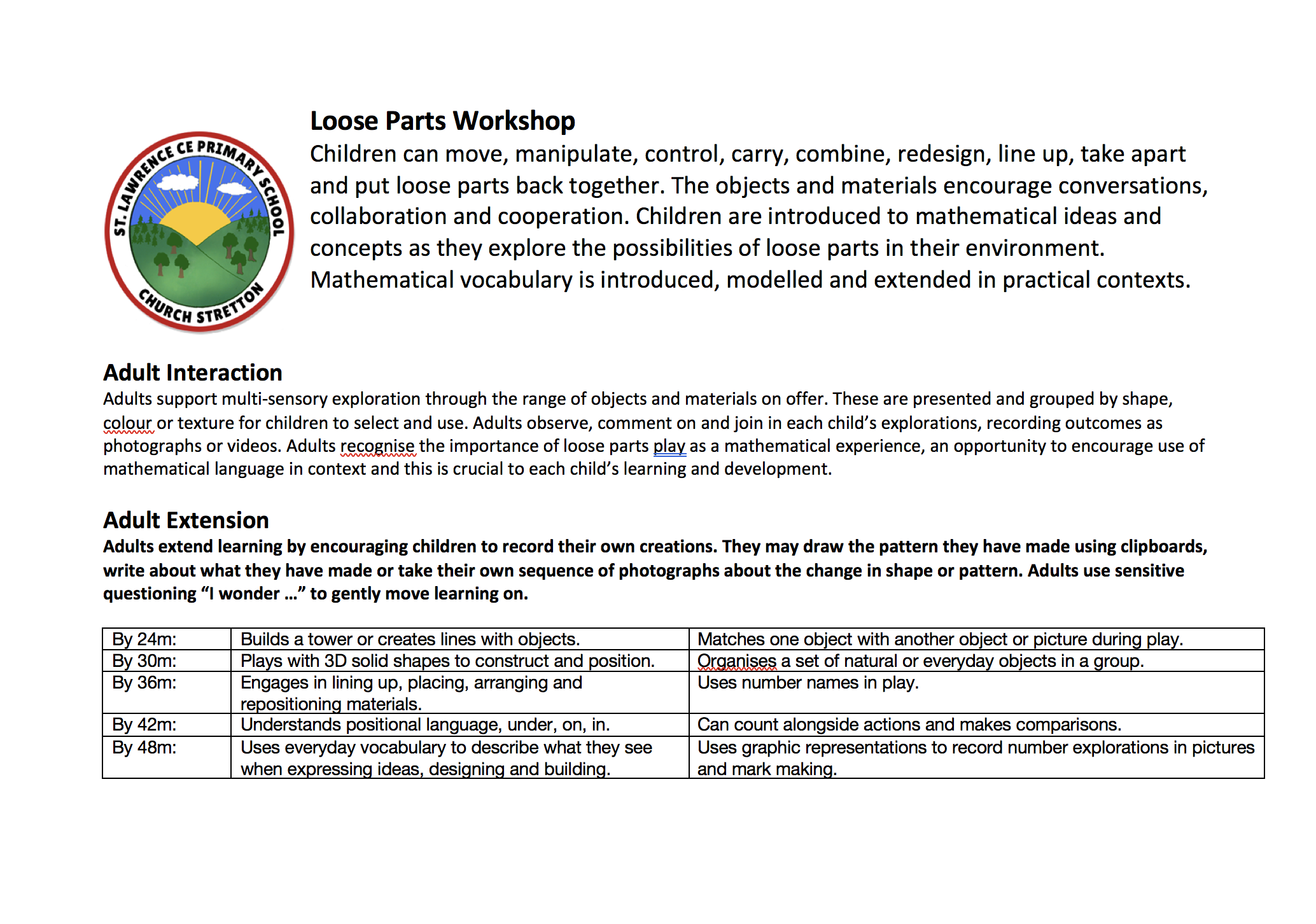
Continuous Provision - Loose Parts Workshop
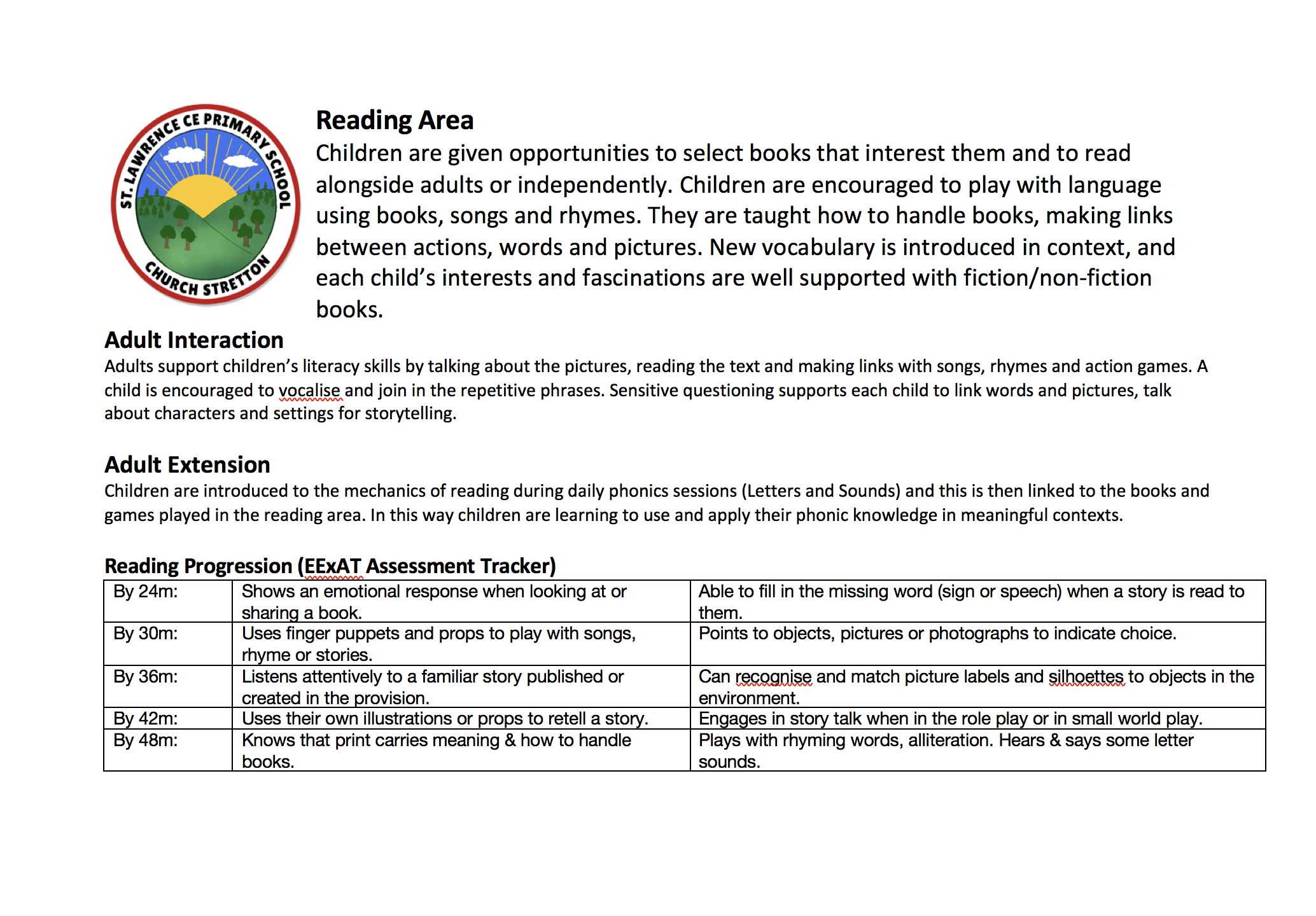
Continuous provision - Reading Area
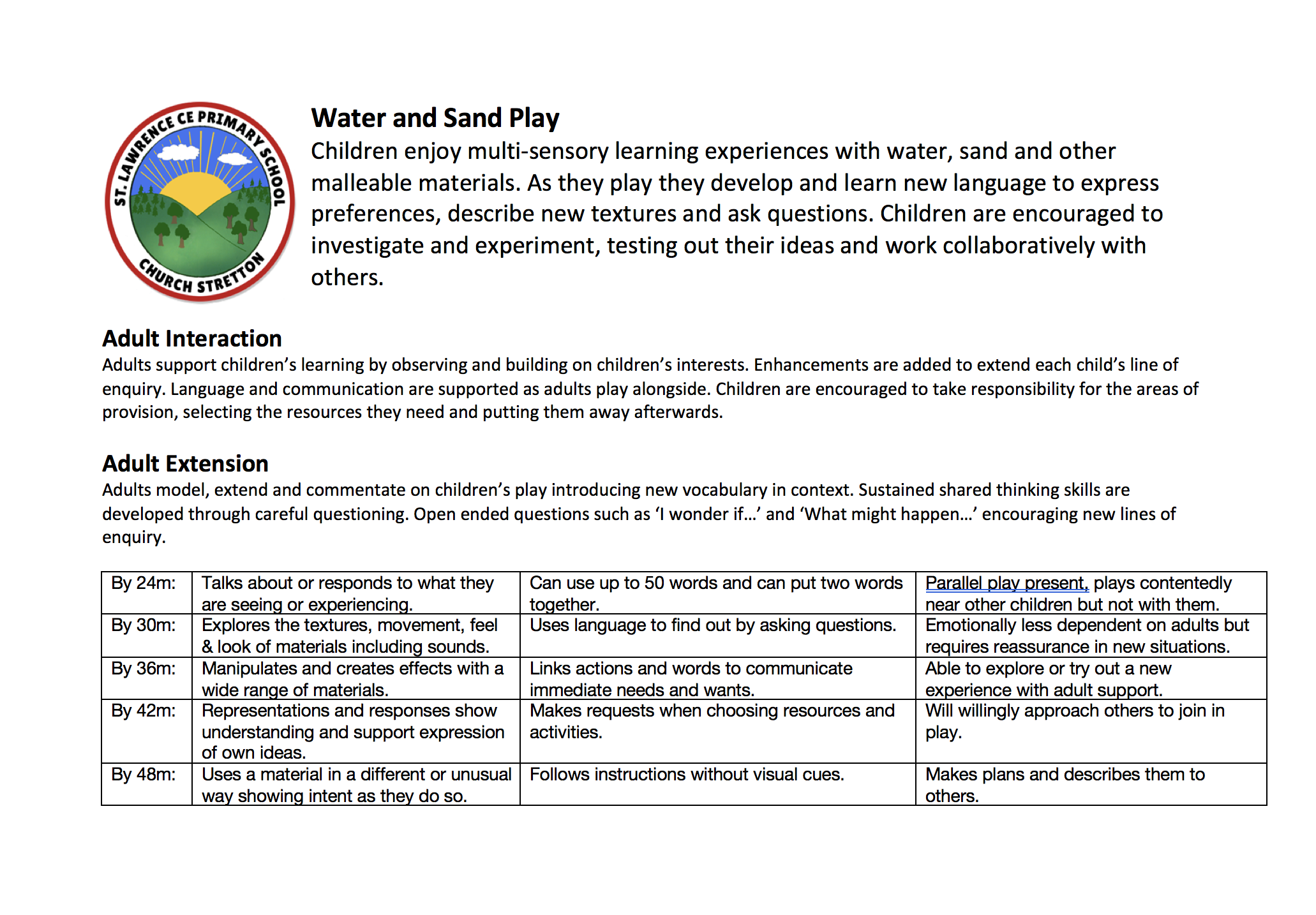
Continuous Provision - Water and Sand Play
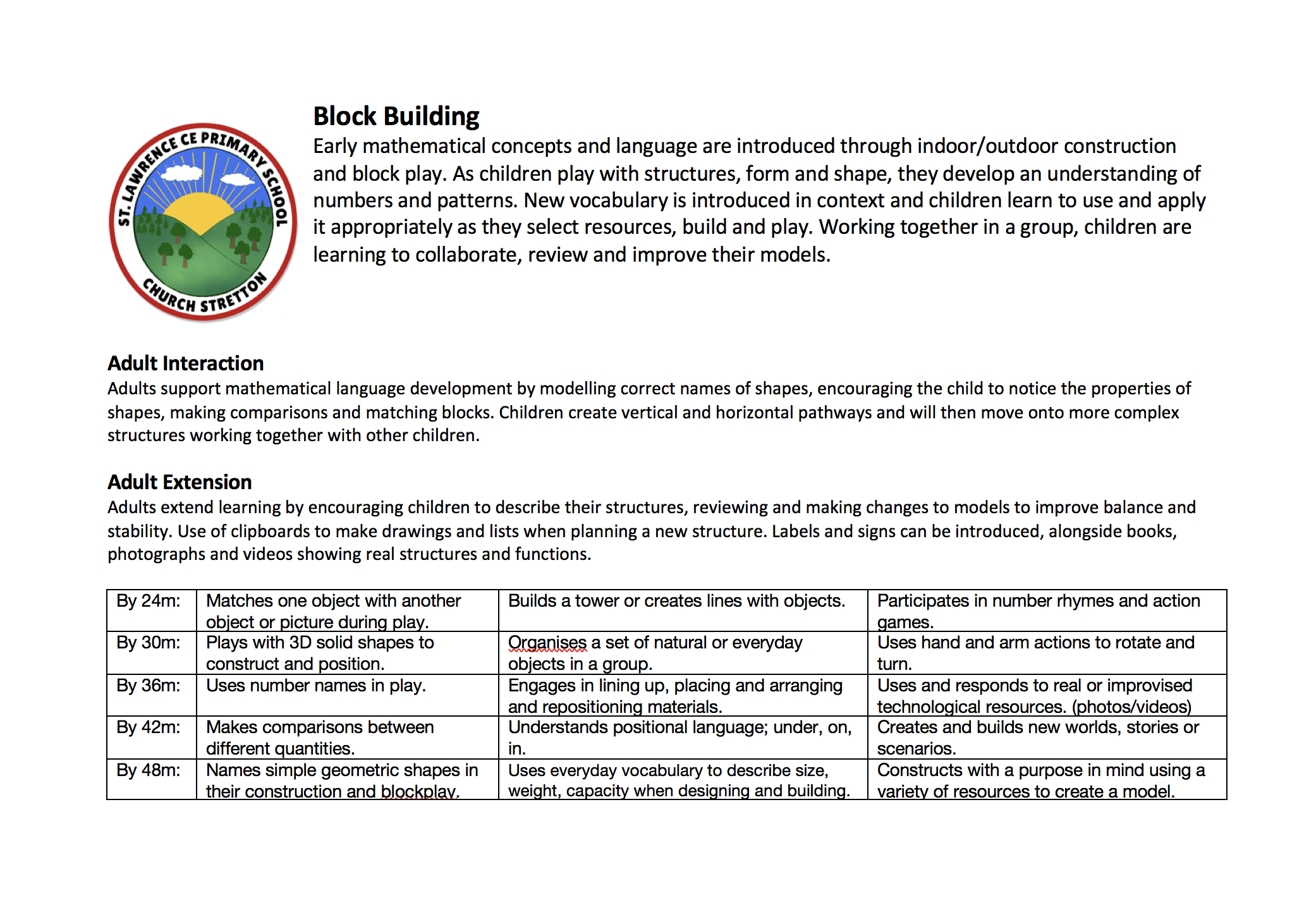
Continuous Provision - Block Building
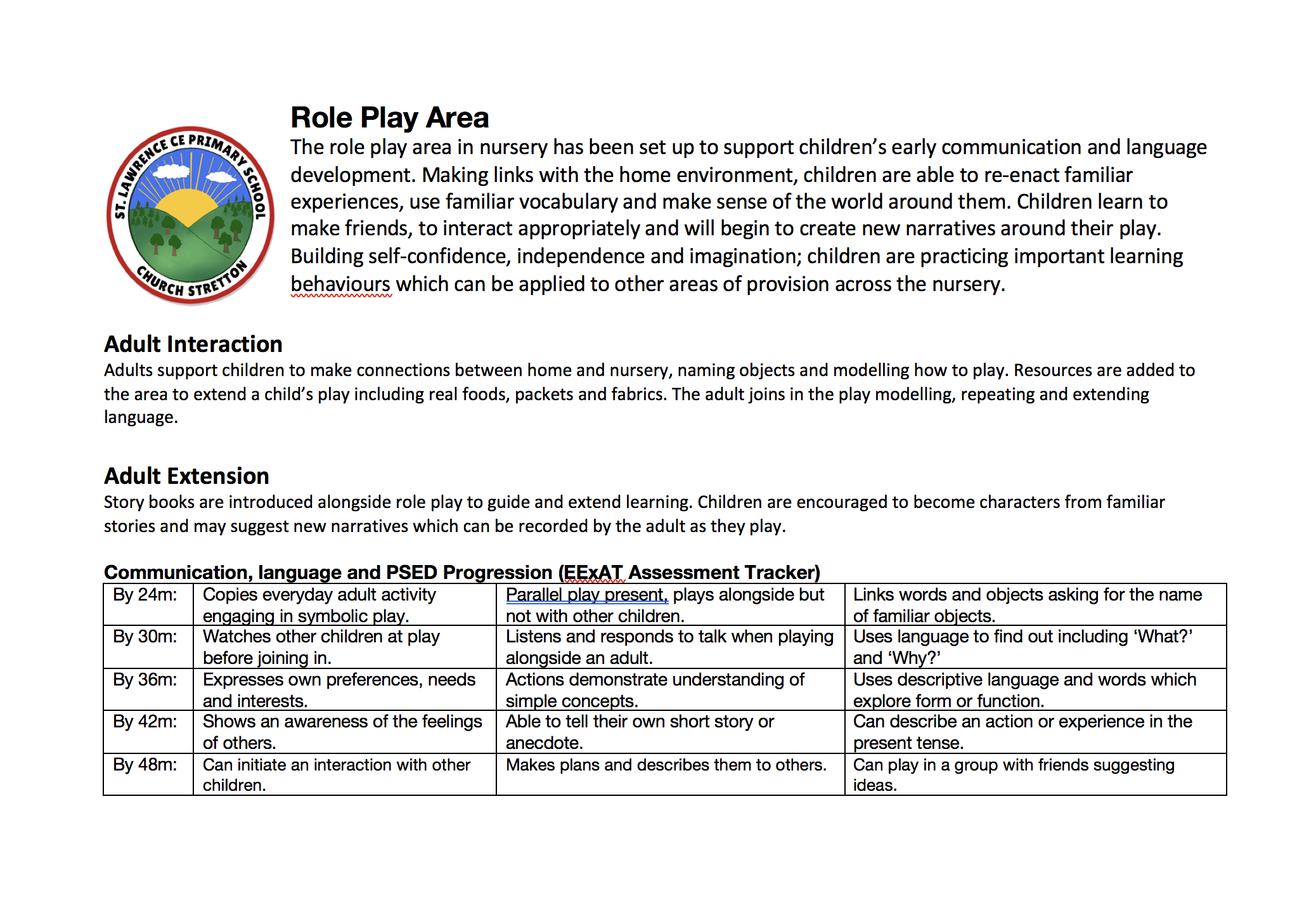
Continuous Provision - Imaginative and Role Play
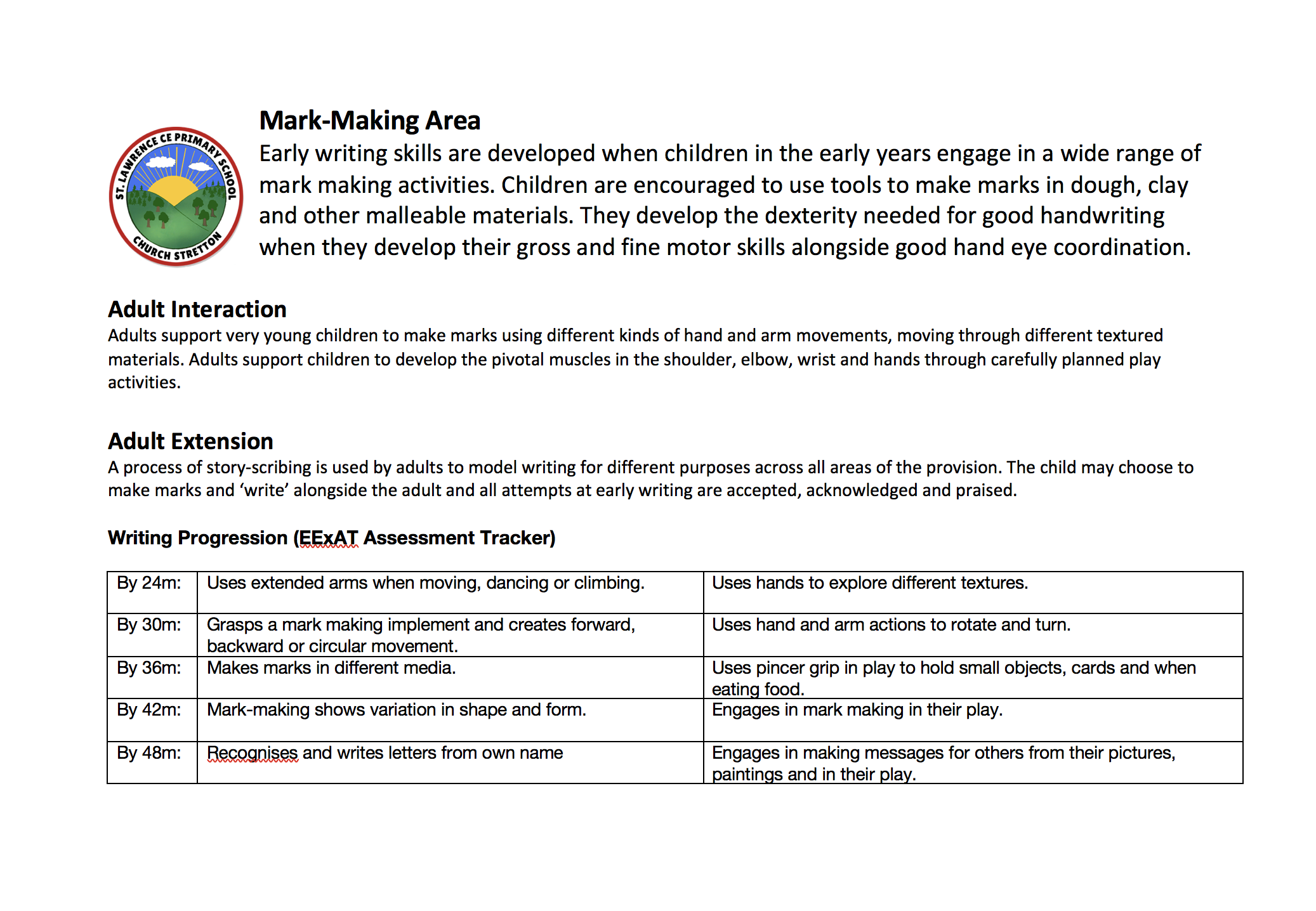
Continuous Provision - Mark Making
Hands of Friendship Intergenerational Project

There has been much publicity and research into the benefits of intergenerational partnerships nationally so the staff and children at St Lawrence’s Nursery were delighted to be invited to participate in a brand new pilot project in Church Stretton, working in partnership with Shropshire Council and Connexus Housing.
The ‘Hands of Friendship’ group meets every Wednesday afternoon at Ley Gardens, Church Stretton.
By building upon the strengths that different generations have to offer, we are able to nurture greater understanding, mutual respect and challenge prejudice. Both parties have the opportunity to give as well as receive, and to feel a sense of ownership and achievement. The pilot project is now attracting interest from further afield; we are developing a model of practice that could be replicated in other areas of Shropshire, joining a growing circle of groups across the country, and adding to the national evidence base. We are seeing all the children grow in confidence and empathy; they are listening and talking more. The project is having a positive impact on their social skills, speech and language learning and cognitive development.
